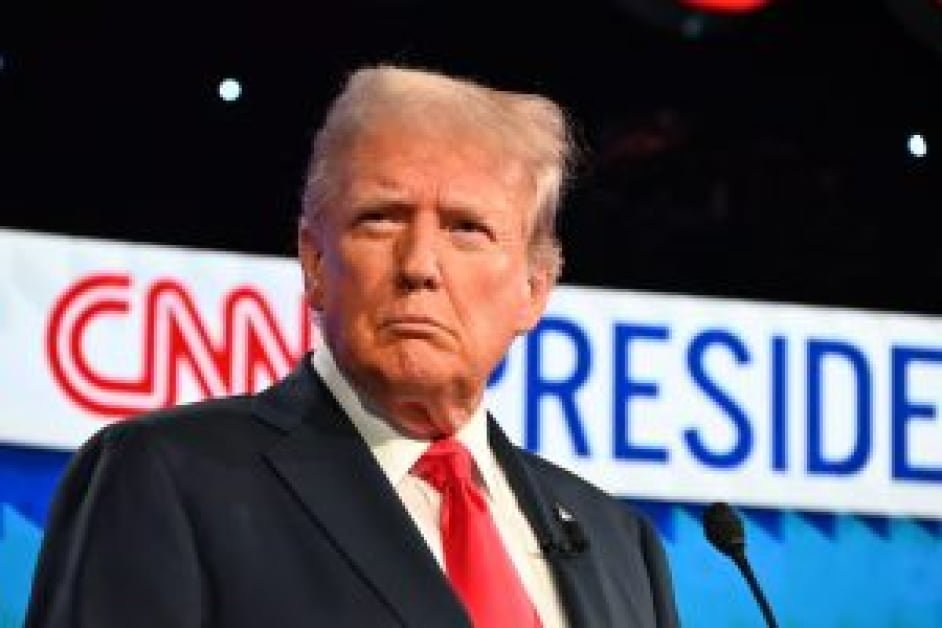As the 2020 presidential election approached its climax, President Donald Trump strategically referenced Ronald Reagan during the final debate against Joe Biden. This move aimed to draw parallels between his policies and the economic success of the Reagan era, showcasing Trump’s dedication to revitalizing the American economy and highlighting his belief in the nation’s strength and resilience. Let’s delve into how this strategic maneuver could sway undecided voters and potentially influence the election’s outcome.
Trump wasted no time in invoking Reagan, a beloved figure among traditional Republicans, to bolster his arguments on abortion during the debate. However, the more significant reference to Reagan’s “Morning in America” was Trump’s brief yet impactful outline of his economic agenda.
During the debate, the economy, particularly inflation, took center stage, with Trump repeatedly critiquing Biden’s economic policies and urging viewers to remember the pre-pandemic prosperity of his first term. Trump touted his initial term as having “the greatest economy in the history of our country,” emphasizing low inflation levels before the pandemic hit. He defended his administration’s spending to prevent an economic downturn akin to the Great Depression.
When Biden questioned the distribution of benefits from Trump’s 2017 tax cuts, which primarily favored the wealthiest individuals, Trump acknowledged this critique as accurate and countered by highlighting his record tax reduction, attributing job creation to this policy. In contrast, Biden argued that Trump left behind an economy in disarray, which he had to salvage, pointing out the minimal inflation levels he inherited.
Looking ahead, Trump’s agenda for a potential second term closely mirrors his first, focusing on additional tax cuts, deregulation, and increased energy production. Despite adding significantly to the national debt during his first term, Trump’s policies resulted in low unemployment, wage growth, and sustained low inflation. Trump’s appeal to voters in the final moments of the debate centered on portraying Biden as a tax-raising bureaucrat.
In contrast to Biden’s economic approach, which aims to rebuild the economy from the ground up, Trump’s emphasis on tax cuts resonates with Americans’ general aversion to taxes and bureaucracy, echoing Reagan’s successful strategies. By referencing Reagan, the architect of the “Make America Great Again” slogan, Trump aligns himself with one of America’s most iconic presidents.
Reagan’s presidency, marked by significant tax cuts and economic growth, set the stage for the GOP’s economic policies for decades. Reagan’s approach led to increased economic inequality and mounting deficits, shaping the nation’s trajectory for years to come.
In their closing statements, Biden emphasized the importance of a fair tax system and pledged to address inflation concerns. Meanwhile, Trump reiterated his achievements in tax and regulation cuts, promising to amplify these efforts if reelected. Trump’s closing remarks centered on portraying a scenario where significant events might not have occurred under his leadership, underscoring his commitment to restoring economic prosperity.


